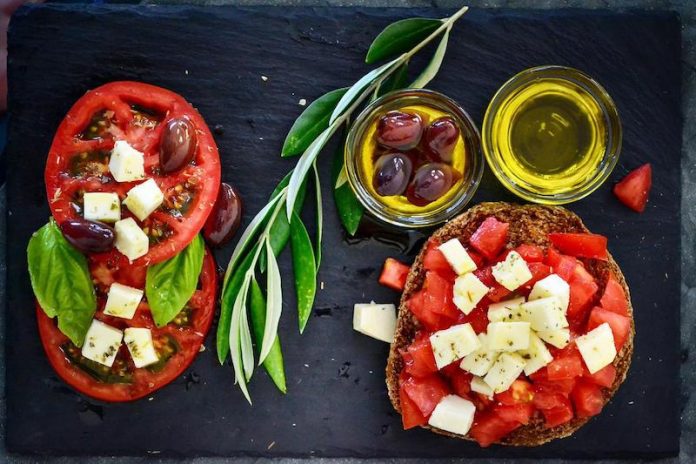
Scientists from Harvard and elsewhere found that eating the Mediterranean diet may help reduce the risk of type 2 diabetes by 30%.
Type 2 diabetes is a condition in which the body becomes resistant to the normal effects of insulin and gradually loses the capacity to produce enough insulin in the pancreas.
People may be able to significantly slow or even halt the progression of the condition through changes to diet and increasing the amount of physical activity they do.
The Mediterranean diet is a way of eating that’s based on the traditional cuisines of Greece, Italy, and other countries that border the Mediterranean Sea.
Plant-based foods, such as whole grains, vegetables, legumes, fruits, nuts, seeds, herbs, and spices, are the foundation of the diet.
Higher Mediterranean diet intake has been linked to reduced risk of type 2 diabetes, but underlying biological mechanisms are unclear.
In the study, researchers aimed to examine the effect of eating a Mediterranean diet on diabetes risk.
They tested 25,317 healthy mid-aged women. Data were collected from November 1992 to December 2017 and analyzed from December 2018 to December 2019.
The team computed the Mediterranean diet intake score (range, 0 to 9) from self-reported dietary intake.
They also checked cases of type 2 diabetes during the follow-up period.
The researchers found that a higher Mediterranean diet intake was linked to as much as a 30% lower type 2 diabetes risk.
They also found that a change in insulin resistance made the largest contribution to lower risk (accounting for 65.5% of the MED–type 2 diabetes association), followed by BMI (55.5%), high-density lipoprotein cholesterol (HDL cholesterol, 53.0%), and inflammation (52.5%).
HDL (high-density lipoprotein), or “good” cholesterol, absorbs cholesterol and carries it back to the liver. The liver then flushes it from the body.
High levels of HDL cholesterol can lower your risk for heart disease and stroke.
Insulin resistance is when cells in your muscles, fat, and liver don’t respond well to insulin and can’t use glucose from your blood for energy.
To make up for it, your pancreas makes more insulin. Over time, your blood sugar levels go up.
Further results showed the link between the Mediterranean diet and type 2 diabetes was seen only among women who had a BMI of at least 25 but not those who had a BMI of less than 25.
Based on the findings, the team concluded that higher Mediterranean diet intake scores were linked to a 30% risk reduction in type 2 diabetes during a 20-year period.
This could be explained in large part by biomarkers of insulin resistance, BMI, cholesterol metabolism, and inflammation.
The research is published in JAMA Network Open and was conducted by Shafqat Ahmad et al.
Copyright © 2022 Scientific Diet. All rights reserved.








